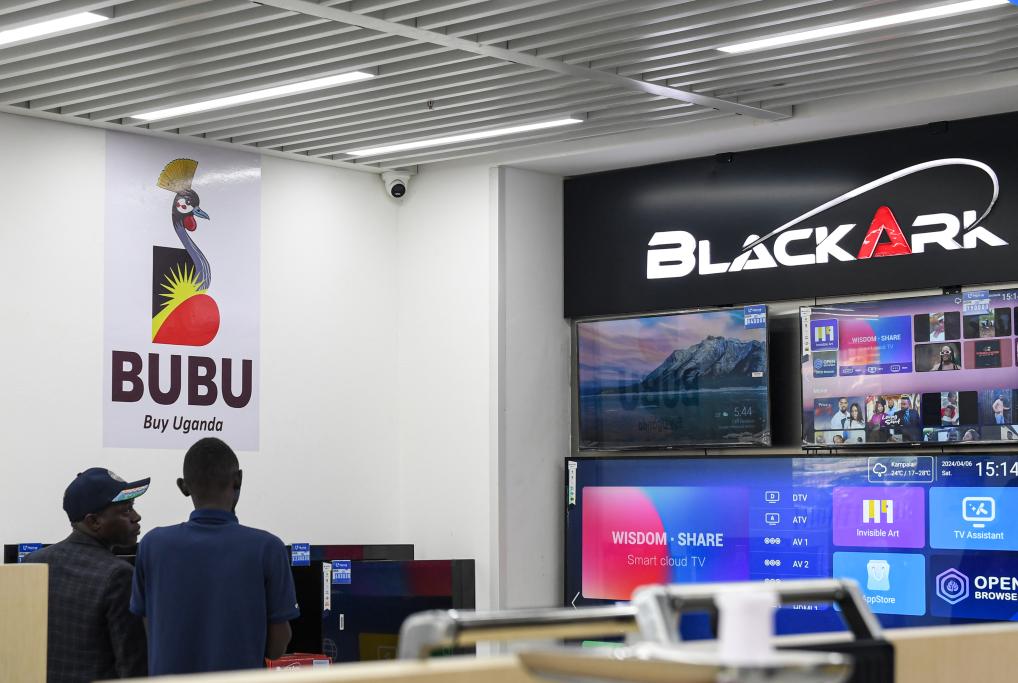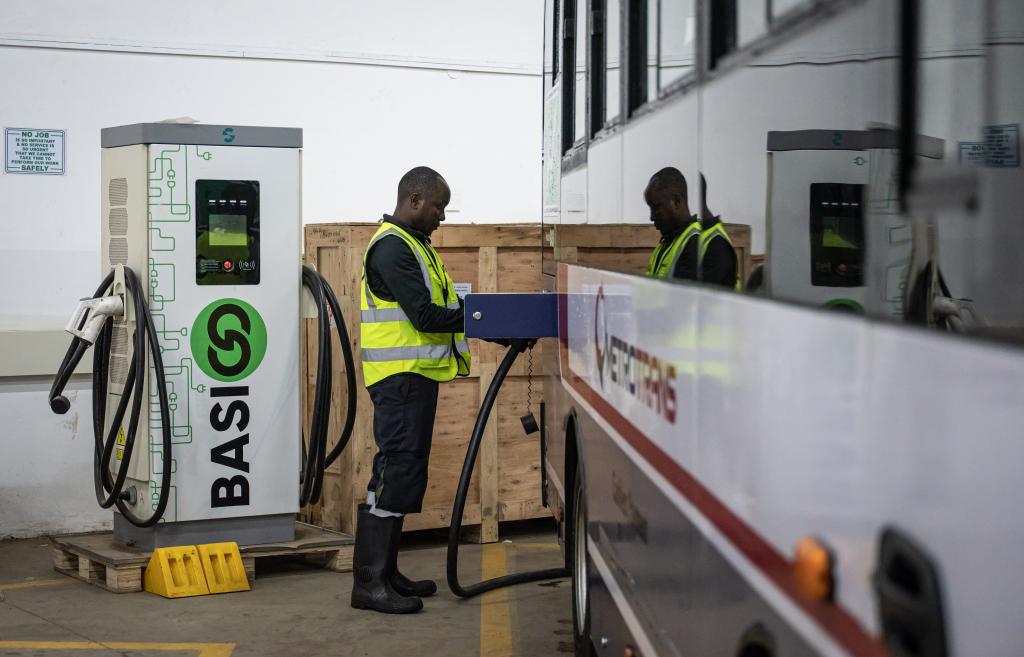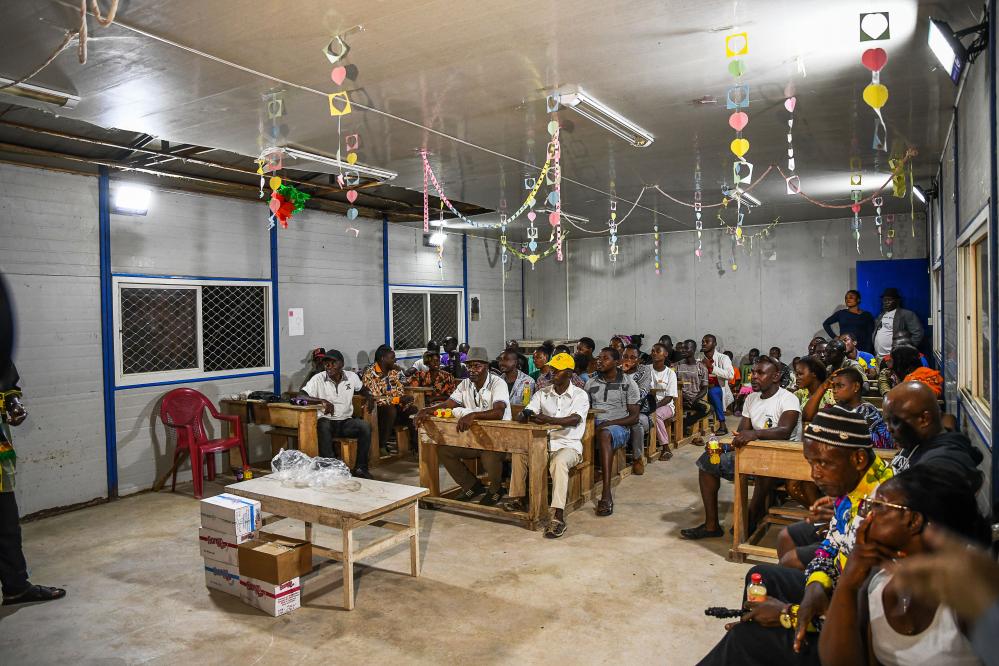Xinhua News Agency, Nairobi, August 25, Title: Jointly building the “the Belt and Road” to stimulate the new vitality of “Made in Africa”
Since the proposal of jointly building the “the Belt and Road” initiative, the flower of cooperation between China and Africa has blossomed on the vast land of Africa. From Uganda to Egypt, from Senegal to Nigeria, industrial parks and economic zones built and operated by Chinese companies have sprung up like mushrooms after rain, becoming a strong engine to promote Africa’s integration into the global industrial chain and help Africa build emerging brands.
Jointly build the “the Belt and Road” cooperation to help Africa’s industrialization, promote the sustainable development of local manufacturing industry, and significantly enhance its competitiveness in the global market. With the continuous deepening of China Africa cooperation, “Made in Africa” is ushering in broad development prospects.
 On April 6, 2024, at the UHome home appliance store in Kampala, the capital of Uganda, two customers were selecting products. Most of the household appliances in the store are produced and sold by the Zhongwu Mbale Industrial Park. The slogan “BUBU” on the wall is the abbreviation of “Buy Uganda, Build Uganda”. Photo by Xinhua News Agency reporter Li Yahui
On April 6, 2024, at the UHome home appliance store in Kampala, the capital of Uganda, two customers were selecting products. Most of the household appliances in the store are produced and sold by the Zhongwu Mbale Industrial Park. The slogan “BUBU” on the wall is the abbreviation of “Buy Uganda, Build Uganda”. Photo by Xinhua News Agency reporter Li Yahui
Park cooperation empowers’ Made in Africa ‘
Helen Mugala, 27, and hundreds of colleagues come here every morning to start a new day of work with hope in the Central Ubalae Industrial Park located in Mbale, eastern Uganda. This industrial park has brought tangible benefits to many locals. I have learned valuable skills here and also gained stable income, “she said.
The industrial park is invested and operated by the Chinese private enterprise Tiantang Group. Since its launch in March 2018, it has attracted more than 40 companies to settle in and created over 5000 job opportunities for the local area. The products produced by enterprises in the park are dazzling, ranging from household appliances to daily beauty products, from home textiles to building materials, from drugs, smartphones to televisions, cars, etc., covering all aspects of life. This park covering thousands of hectares has become an incubation platform for local brands, setting an example for Uganda’s industrialization and modernization.
Mingzhu Technology Co., Ltd. is one of the earliest enterprises to settle in the industrial park, mainly producing lighting products. The LED lamps produced by the company are affordable and easy to maintain, reducing Uganda’s dependence on imported lamps.
Joseph Otim, a local technician, said, “In the past, LED lighting fixtures in Uganda relied mainly on imports, which were expensive and difficult to maintain. Chinese companies have changed this situation. Now, our company produces about 3 million LED bulbs and tubes every year and sells them throughout Uganda
The emerging industrial parks constructed and operated by Chinese enterprises in recent years are a microcosm of the deepening cooperation and upgrading of industrial infrastructure between China and Africa. The industrial park in Senegal, the Lequi Free Trade Zone in Nigeria, and the China Egypt Teda Suez Economic and Trade Cooperation Zone, in which China has participated in investment, have played a “nest building and phoenix attracting” role in attracting investment to African countries, promoting the accelerated development of “Made in Africa”.
 On June 2, 2023, in Nairobi, Kenya, staff from Kenya Electric Bus Company were charging electric buses. Photo by Xinhua News Agency reporter Wang Guansen
On June 2, 2023, in Nairobi, Kenya, staff from Kenya Electric Bus Company were charging electric buses. Photo by Xinhua News Agency reporter Wang Guansen
Green cooperation enhances the charm of ‘Made in Africa’
The concept of ecological protection and sustainable development advocated by the “the Belt and Road” initiative is helping African countries to adopt green technology and clean energy in manufacturing. This not only builds a green barrier for Africa’s natural environment, but also labels African manufacturing as “green manufacturing”.
Gogo Electronics, headquartered in Kampala, the capital of Uganda, is one of the three major electric motorcycle manufacturers in the country. This electric motorcycle manufacturer imports lithium batteries from China to provide environmentally friendly and economical travel options for the local market. After purchasing a motorcycle, customers can enjoy a ‘battery swap’ service where they can send their used battery to a replacement station at any time to exchange for a fully charged battery. They will find that choosing an electric motorcycle is not only cost-effective, but also environmentally friendly, “said Yanosh Bisasso, the company’s Chief Operating Officer
In Kenya, the BasiGo electric bus project also reflects the achievements of China Africa cooperation in the field of eco-friendly transportation. In March 2022, Kenyan startup BasiGo became the first company to launch electric buses in the country. These buses are assembled locally using parts designed by Chinese automaker BYD and can travel 250 kilometers on a single charge.
The company’s marketing manager Mutoto Sifuna stated that the monthly average fuel cost for diesel buses is as high as 200000 Kenyan shillings (approximately 129 Kenyan shillings per US dollar), while the energy cost for electric buses is only 60000 Kenyan shillings. The company plans to introduce and operate 1000 electric buses by 2025.
 On July 11, 2024, in the city of Kribi in the southern region of Cameroon, Kribi Highway Operation Company held a highway safety lecture at the Ndamale Bilingual School. Xinhua News Agency (Photo by Science Popularization)
On July 11, 2024, in the city of Kribi in the southern region of Cameroon, Kribi Highway Operation Company held a highway safety lecture at the Ndamale Bilingual School. Xinhua News Agency (Photo by Science Popularization)
Deepening cooperation to light up the future of ‘Made in Africa’
The cooperation between China and Africa in the field of electric transport has become a vivid example of the positive results of the joint construction of the “the Belt and Road”. The high-quality products and technologies brought by Chinese enterprises are helping Africa move towards a greener and more sustainable future. By deepening cooperation with China, African manufacturing continues to enhance its production capacity, and by applying eco-friendly and innovative technologies, African brands can establish a foothold in the global market and demonstrate competitiveness.
Roda Vajira, an official from the United Nations Environment Programme, stated that cooperation with China has enabled African countries to access advanced technology and support. Many African countries are vigorously promoting green transformation through cooperation with China, prioritizing clean energy, which is crucial for achieving global sustainable development.
Yang Baorong, Director and Researcher of the Economic Research Office at the West Asia and Africa Institute of the Chinese Academy of Social Sciences, stated in an interview with Xinhua News Agency that China has provided high-quality and affordable technology and products to Africa, making them more affordable for more African people.
With the deepening of cooperation between the two sides, China and Africa are joining hands to embark on a beautiful future of “Made in Africa”. African countries will develop more advanced technologies, cultivate more professional talents, and explore broader markets. “Made in Africa” is confidently entering a new era of prosperity and sustainable development.
